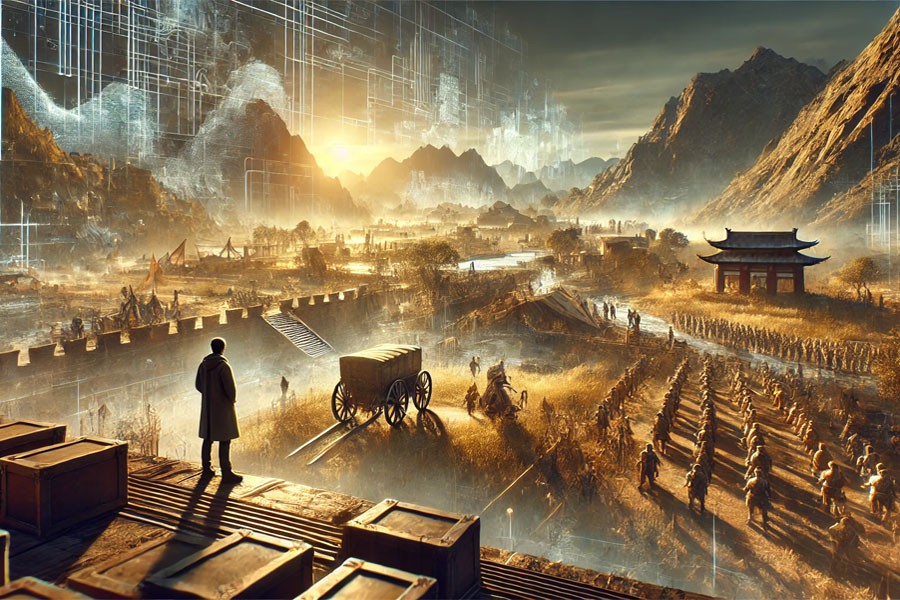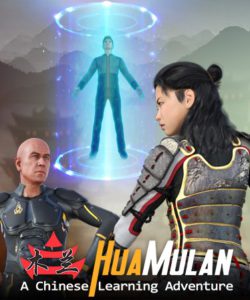World history is more than just a series of dates and events; it is a tapestry of human experiences, struggles, and triumphs. The challenge in teaching history is not just to inform but to engage learners on a deeper emotional level. Research has shown that emotionally charged events are better remembered, making them powerful tools for education. This insight is particularly relevant in the realm of world history games, where players can step into the shoes of historical figures, experience pivotal moments, and develop a deeper understanding of the past.
The Power of Emotion in Learning
Dr. Karl Kapp, a renowned expert in the field of educational psychology and gamification, emphasizes the importance of emotional engagement in learning. His research indicates that events that evoke strong emotions are more likely to be remembered and retained in long-term memory. This is because emotions trigger the release of neurotransmitters that enhance the brain’s ability to store and recall information.
In the context of world history, this means that by connecting learners emotionally to the events of the past, educators can significantly improve retention and understanding. World history games are uniquely positioned to achieve this, as they can simulate historical events in ways that traditional textbooks cannot.
How World History Games Harness Emotion and Empathy
World history games immerse players in the past, allowing them to experience history not as passive observers but as active participants. By placing learners at the center of historical events, these games foster empathy and emotional connections that make the learning experience more impactful.
- Immersive Storytelling: World history games often employ rich narratives that draw players into the lives of historical figures. Whether they are leading troops into battle, navigating political intrigue, or making decisions that could change the course of history, players are not just learning about history—they are living it. This immersion fosters a sense of empathy, as players experience the challenges, fears, and hopes of the characters they control.
- Decision-Making and Consequences: Many world history games incorporate decision-making mechanics that force players to consider the consequences of their actions. These choices often carry emotional weight, as they can lead to victory, defeat, or unintended consequences. By making history feel personal, these games help players understand the complexities of historical events and the human emotions behind them.
- Visual and Audio Cues: The use of visuals and sound in world history games also plays a crucial role in evoking emotion. Detailed graphics, realistic soundscapes, and evocative music can transport players to different times and places, making the experience more vivid and emotionally resonant. These sensory elements work together to create a more immersive and memorable learning experience.
Odeum Studio: Building Worlds, Creating Empathy
At Odeum, we believe in the power of emotion-driven learning. Odeum Studio, our innovative platform for creating educational games, allows educators to build immersive historical worlds that place learners at the heart of the action. By leveraging the principles of emotional engagement and empathy, Odeum Studio enables the creation of world history games that not only teach but deeply resonate with learners.
Creating Emotional Connections with Historical Quests
With Odeum Studio, educators can design quests that are grounded in historical accuracy and tailored to evoke emotional responses. These quests are not just about completing tasks—they are about understanding the human experiences behind historical events. For example, a quest might involve navigating the moral dilemmas faced by a leader during a time of war or making tough decisions during a period of social upheaval. By engaging with these scenarios, learners develop a deeper emotional connection to the material, leading to better retention and understanding.
Scientific Evidence-Based Learning
Odeum Studio’s approach is rooted in scientific evidence. By aligning our game design with Dr. Karl Kapp’s research on long-term memory and emotional engagement, we ensure that our games are not just educational but also effective in promoting lasting learning. The ability to build custom historical worlds and quests allows educators to create experiences that are both historically accurate and emotionally impactful.
The Future of World History Education
World history games represent a powerful tool for educators seeking to engage learners on a deeper level. By harnessing the power of emotion and empathy, these games can make history come alive, transforming it from a series of dates and facts into a rich, immersive experience that resonates with learners long after the game is over.
At Odeum, we are committed to advancing this approach through Odeum Studio, empowering educators to create world history games that not only teach but also inspire. As we continue to explore the potential of emotion-driven learning, we believe that the future of world history education lies in the ability to connect learners with the past in meaningful, memorable ways.
Ready to bring history to life? Discover how Odeum Studio can help you create powerful, emotionally engaging world history games that leave a lasting impact on your learners.



